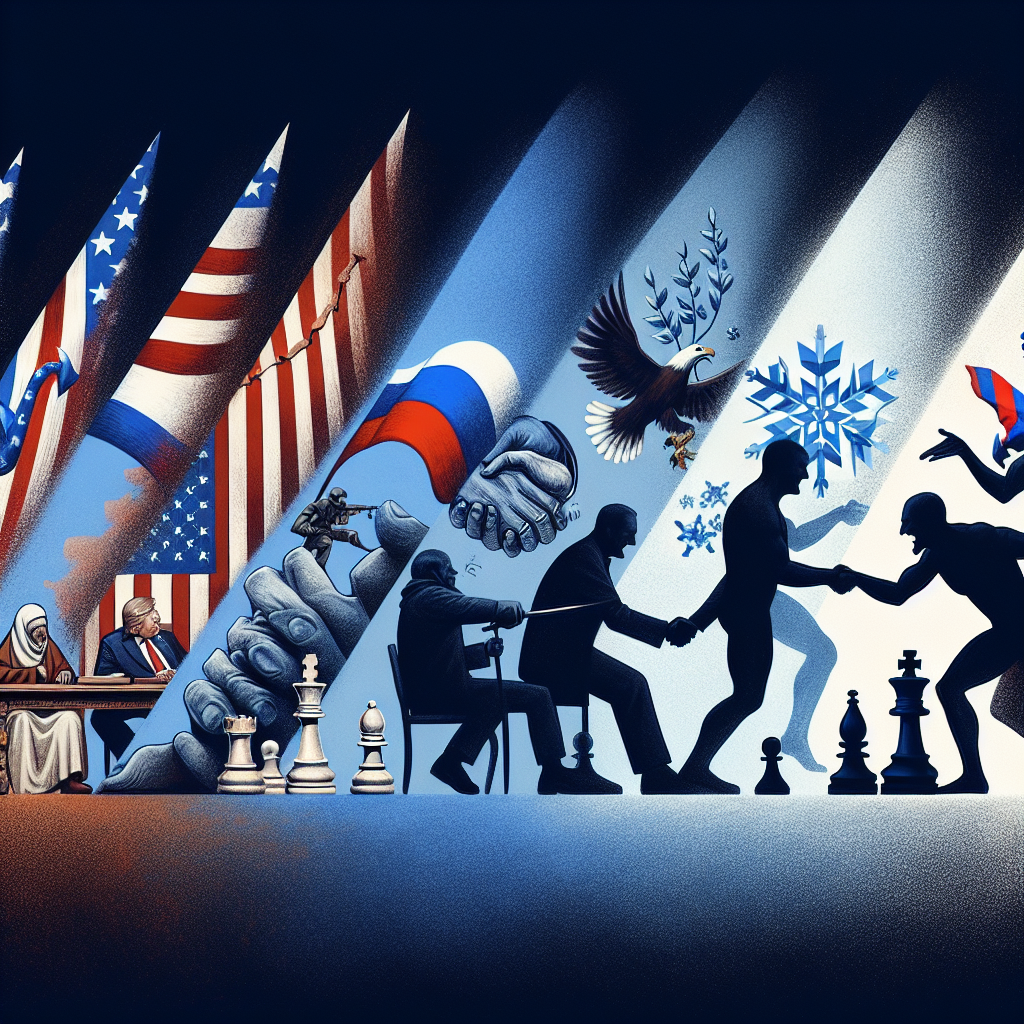Understanding the Roots of US-Russia Tensions: Beyond Naivety
Understanding the Roots of US-Russia Tensions: Beyond Naivety
Historical Context
The complex relationship between the United States and Russia is deeply rooted in historical events that have shaped their interactions over the decades. Understanding these roots is crucial to comprehending the current tensions.
- Cold War Legacy: The ideological battle between capitalism and communism left a lasting impact on both nations.
- Post-Soviet Transition: The collapse of the Soviet Union led to a power vacuum and a redefined global order.
Geopolitical Rivalry
Geopolitical interests have often placed the US and Russia at odds, with both nations vying for influence on the global stage.
- NATO Expansion: The eastward expansion of NATO is perceived by Russia as a direct threat to its sphere of influence.
- Energy Politics: Control over energy resources and routes remains a contentious issue.
Ideological Differences
Beyond geopolitical interests, ideological differences continue to fuel tensions between the two nations.
- Democracy vs. Authoritarianism: The US champions democratic values, while Russia is often seen as promoting authoritarian governance.
- Human Rights Concerns: Disagreements over human rights practices further strain relations.
Recent Developments
Recent events have exacerbated tensions, highlighting the ongoing challenges in US-Russia relations.
- Cybersecurity Threats: Allegations of cyberattacks and election interference have heightened mistrust.
- Military Conflicts: Involvement in conflicts such as Syria and Ukraine has intensified rivalry.
Conclusion
The tensions between the US and Russia are a complex interplay of historical legacies, geopolitical rivalries, and ideological differences. Understanding these roots is essential for navigating the current landscape and seeking pathways to de-escalation. While challenges remain, recognizing the multifaceted nature of these tensions can pave the way for more informed and strategic diplomatic efforts.














